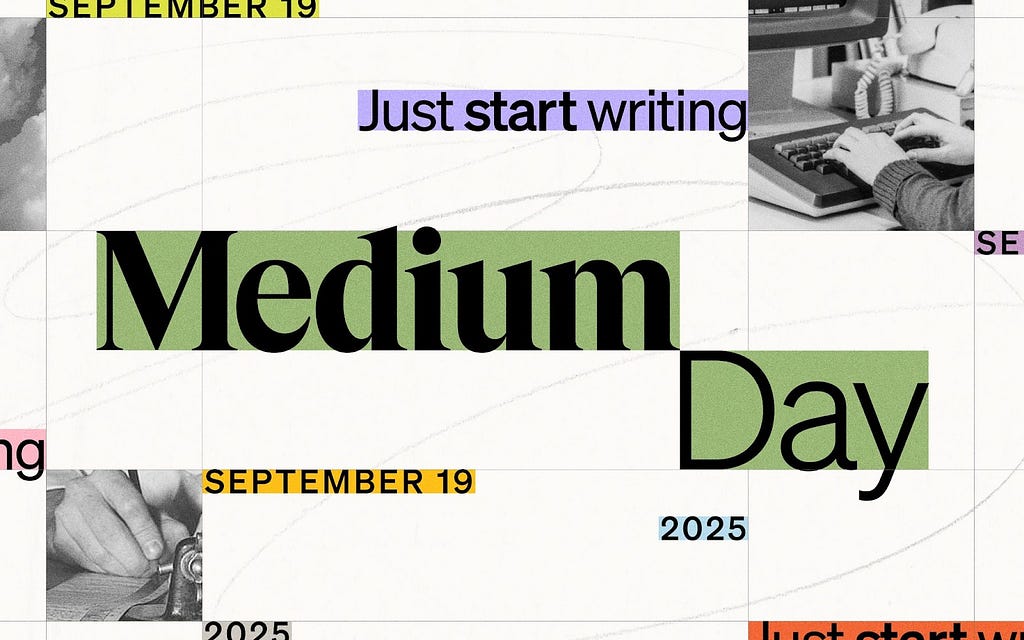T
The Medium Newsletter
Guest
The single word that makes anxiety worse + the importance of Superman (Issue #389)
Every breakthrough starts in the dark. A scientist spots an odd pattern in the data. A doctor senses something’s off before the test results arrive. A designer notices a friction point a metric can’t explain. In moments like these, certainty comes later. First comes a guess — informed by experience, sharpened by doubt, and tested against reality.
AI strategist Nate Sowder explores this leap from uncertainty to hypothesis in his article on “abduction,” the reasoning style coined by 19th‑century philosopher Charles Sanders Peirce. Abductive reasoning starts with incomplete information, then forms the most plausible explanation to test. Peirce argued that doubt is the engine of real thought: a designer noticing confusion before it happens, a scientist forming a theory from partial data, a product team guessing why a metric dropped. Sowder argues that rather than a mysterious human impulse, abduction is a trainable, repeatable skill. It’s also a mindset, one that resists rushing toward certainty and treats wrong turns as part of the process. As Peirce famously warned, “If you skip the discomfort of doubt, you also skip the chance to learn.”
Way back in issue #252 of this newsletter, we flagged one of the best stories we’ve read on decision-making, which ties directly to the power of abductive thinking. In “It’s never the “right time” — here’s how to know when to act anyway,” writer Mark Shrime, MD, PhD walks through how the biggest obstacle to making decisions isn’t correctness, it’s inaction. We’d rather wait and be right, or not act at all. But abductive thinking gives you a tool to get started faster. You don’t have to have an answer to get started, you just have to have a question.
— Anna Dorn
Recommended reading:
- Psychiatrist and neuroscientist Jud Brewer MD PhD explains that asking why you’re anxious can actually make anxiety worse. The question itself becomes a mental reflex that feeds the feeling it’s trying to fix. Instead of searching for a cause, Brewer suggests grounding yourself in the present: noticing sensations, thoughts, and feelings as they arise. This awareness, he writes, is where change begins.
- In his deep dive on James Gunn’s Superman, Cole Haddon argues that the reboot is a political mirror. The essay shows how Gunn uses the superhero genre to reflect on America’s fractured ideals, asking viewers to decide what heroism, power, and morality mean in 2025.
- Teachers are noticing a disturbing trend: kids are now better at swiping screens than using scissors. With classrooms leaning more and more on tablets and touchscreens, old-school motor skills — like holding pencils or tying shoelaces — are on the decline. And as Amber Case warns, there’s more at stake than arts and crafts: for example, the role that touch plays in shaping young minds.

 Register for Medium Day: September 19, 2025
Register for Medium Day: September 19, 2025
Medium Day is a free, live, online conference where we’re bringing our amazing community together to celebrate the power of writing. We’ll be making room for fresh starts, blank pages, and new beginnings — and all you need to bring is an open mind.

Deepen your understanding every day with the Medium Newsletter. Sign up here.
Edited and produced by Scott Lamb & Carly Rose Gillis
Questions, feedback, or story suggestions? Email us: [email protected]
Like what you see in this newsletter but not already a Medium member? Read without limits or ads, fund great writers, and join a community that believes in human storytelling.
The important discomfort of doubt was originally published in The Medium Blog on Medium, where people are continuing the conversation by highlighting and responding to this story.
Continue reading...

